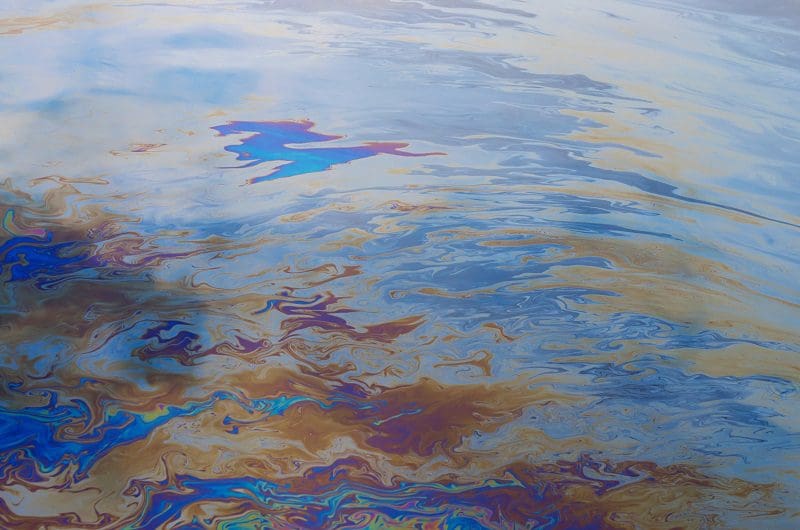Our seas and oceans are invaluable resources that support life on Earth. They provide us with food, livelihoods, and a rich biodiversity. However, they face numerous threats, with oil spills being one of the most devastating. These spills have had catastrophic effects on marine life, necessitating the urgent development and implementation of innovative oil spill cleanup technologies.
Here, we explore the importance of protecting our seas, the historical impacts of oil spills, the need for innovative solutions, the current state of oil spill cleanup, environmental considerations and challenges, looking to the future, and concludes by reiterating the importance of protecting oceans and the role of innovative oil spill cleanup technologies.
The Importance of Protecting Our Seas and Oceans
Our seas and oceans cover more than 70 percent of the Earth’s surface and play a vital role in maintaining the planet’s overall health and well-being. They regulate climate, produce oxygen, absorb carbon dioxide, and support many marine ecosystems. Additionally, they provide sustenance and livelihoods to millions of people worldwide. Safeguarding our seas is an ecological imperative and a social and economic necessity.
Historical Impacts of Oil Spills
Oil spills have wreaked havoc on marine ecosystems and coastal communities throughout history. The infamous Exxon Valdez spill in 1989 released approximately 11 million gallons of crude oil into Alaska’s Prince William Sound, causing widespread devastation. The spill killed thousands of seabirds, marine mammals, and fish, impacting the region’s ecosystem and economy. Similar incidents, such as the Deepwater Horizon spill in 2010, have further highlighted the urgent need for effective oil spill cleanup technologies.
The Need for Innovative Oil Spill Cleanup Technologies
Traditional oil spill cleanup methods, such as booms, skimmers, and dispersants, have been employed for decades. While they have had some success, these methods have limitations. Booms and skimmers are often ineffective in containing and recovering the spilled oil, and dispersants can introduce toxic chemicals into the marine ecosystem, causing additional harm. Furthermore, large oil spills’ sheer scale and complexity present significant challenges for cleanup operations.
The Current State of Oil Spill Cleanup
Efforts to clean up oil spills have improved over the years, but much work remains. Advanced technologies, such as remotely operated vehicles (ROVs) and autonomous underwater vehicles (AUVs), have been employed to access hard-to-reach areas and perform cleanup operations with minimal human intervention. However, these technologies are yet to be widespread and face limitations in terms of cost and scalability.
Challenges Faced While Cleaning Oil Spills
Oil spills present several challenges for cleanup operations. Spilled oil can spread rapidly, driven by ocean currents, wind, and waves, making containment and recovery efforts extremely challenging. The diverse nature of marine environments also poses difficulties, as cleanup operations must navigate intricate ecosystems and delicate habitats without causing further harm. Additionally, the safety of cleanup workers is a paramount concern, as exposure to toxic chemicals and hazardous conditions can have severe health consequences.
The Environmental and Economic Impact of Improper Cleanup
The environmental and economic impact of improper oil spill cleanup must be considered. Oil spills can have long-lasting consequences on marine ecosystems, killing marine life, destroying habitats, and contaminating water supplies. The economic repercussions are immense, with industries such as fishing, tourism, and recreation suffering severe losses. Investing in innovative cleanup technologies is imperative to mitigate these devastating effects.
Environmental Considerations and Challenges
Efforts to clean up oil spills must balance effectively removing the oil and minimizing potential environmental impacts. Cleanup technologies should be evaluated based on their ability to restore affected ecosystems while avoiding further harm. Regulatory frameworks and guidelines are crucial in ensuring environmentally friendly and safe cleanup methods. These frameworks aim to protect marine life, biodiversity, and water quality while addressing the urgency of oil spill cleanup.
It is essential to consider how cleanup operations can affect marine ecosystems. Disrupting habitats, disturbing wildlife, and altering the ecosystem’s natural balance are unintended consequences that must be mitigated. Cleanup efforts must be sensitive to the vulnerability and interconnectedness of marine organisms, ensuring minimal disturbance while effectively removing the spilled oil.
Looking to the Future
Safeguarding our seas requires international cooperation in developing and implementing innovative cleanup strategies. Collaboration among governments, industries, and environmental organizations is crucial to facilitate knowledge sharing, funding, and technological advancements. By pooling resources and expertise, we can accelerate the development of cutting-edge oil spill cleanup technologies.
Promising trends and potential advancements in oil spill cleanup offer hope for more effective and sustainable solutions. Innovative approaches, such as nanotechnology, bioremediation, and robotics, show great potential in enhancing cleanup operations’ efficiency and environmental friendliness. These technologies can selectively bind with oil particles, promote natural degradation processes, and access hard-to-reach areas, minimizing human intervention and reducing the impact on marine ecosystems.
Conclusion
Safeguarding our oceans and seas is a responsibility we must embrace. Oil spills pose a significant threat to these valuable ecosystems, and the need for innovative oil spill cleanup technologies has never been more pressing. We can drive collective action towards developing and implementing effective cleanup strategies by reiterating the importance of protecting our oceans and marine life.
The role of innovative technologies cannot be overstated in reducing environmental damage and preserving the health and beauty of our seas for future generations. Together, let us strive for a future where our waters are protected and oil spills become a thing of the past.
Oil and gas operations are commonly found in remote locations far from company headquarters. Now, it's possible to monitor pump operations, collate and analyze seismic data, and track employees around the world from almost anywhere. Whether employees are in the office or in the field, the internet and related applications enable a greater multidirectional flow of information – and control – than ever before.











